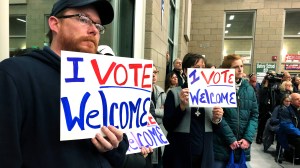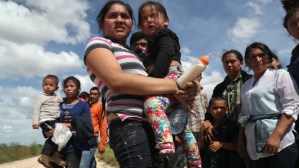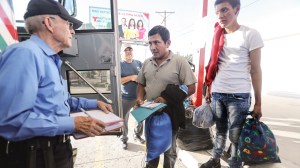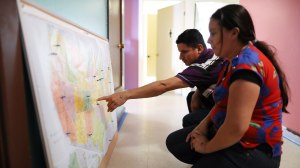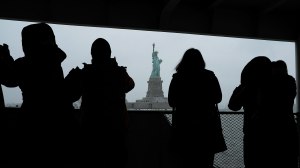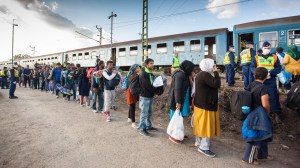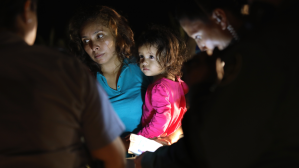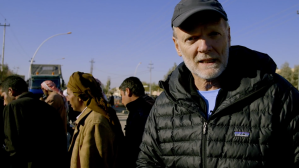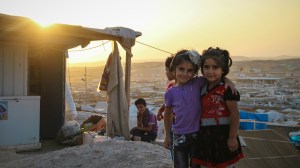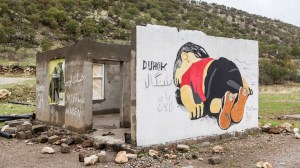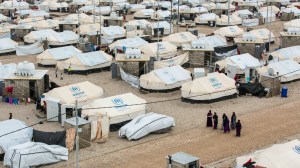In this series

The United States is on track to welcome the fewest refugees since its resettlement policy was formalized in 1980, by a substantial margin.
Capped at 18,000 people for 2020—the lowest ceiling on record—the US has resettled 7,600 refugees, with only three months left in the fiscal year.
According to a joint report released today by World Relief and Open Doors USA, persecuted minorities representing a variety of religions have been harmed by the decline in resettlement.
“Among those most disadvantaged have been Christian refugees from the countries where Christians face the most severe persecution in the world,” the report states.
So far in 2020, the US has resettled fewer than 950 Christians from the 50 countries where it is hardest to be a Christian, according to Open Doors’s annual World Watch List. At this rate, the US will receive 90-percent fewer Christian refugees this year than five years ago.
For example, the US is projected to resettle only 20 Syrian Christian refugees, 50 Iranian Christians, and 86 Iraqi believers this year, despite their countries ranking No. 11, No. 9, and No. 15 on the 2020 World Watch List.
Historically, the US has welcomed significant numbers of Christian refugees from countries where they are persecuted. For instance, in 2016 the US took in nearly 2,300 Christians from Iran and 2,000 from Iraq.
But the resettlement of Christians from the world’s top persecutors is now a fraction of what it was only a few years ago.
Christians aren’t the only ones suffering. Compared to 2015, US resettlement of Baha’i from Iran, Muslims from Burma, and Yezidi from Iraq has decreased by 98 percent, 95 percent, and 92 percent, respectively.
This marks a massive departure from American norms. Since the Refugee Act came into effect in 1980, more than 3 million refugees have resettled in the US. The majority of those refugees have been Christians, many fleeing persecution in their home countries.
According to the new report, the average annual resettlement ceiling in the US between 1980 and 2016 was about 95,000 refugees, with about 81,000 actually entering the country each year. That pattern has come to a grinding halt.
While 97,000 refugees were resettled in America in 2016, including 14,551 Christians from countries with the worst persecution records, the US welcomed less than 23,000 in 2018, fewer than were received by Canada. The previous low was 27,000 in 2002, in the aftermath of the 9/11 attacks.
Evangelical leaders have joined with policymakers, including ambassador-at-large for international religious freedom Sam Brownback and the US Commission on International Religious Freedom, to encourage the Trump administration to return the resettlement ceiling to the historic norm.
Those calls have been rejected. In fact, the cap has continued to shrink each year since 2016.
The decimation of the American resettlement program, and the accompanying decline in incoming Christian refugees, comes in sharp contrast to early promises by Trump officials.
At the same time that the administration imposed a ban on refugees from some Muslim-majority countries—a campaign opposed by many evangelical leaders—the White House indicated that Christian refugees would be prioritized, to the dismay of some Arab church leaders who want to preserve their flocks in the Middle East.
In reality, while the Trump administration has in some ways highlighted assistance to religious minorities around the world, that hasn’t translated into more refugees coming to the United States.
“The number of persecuted Christians to whom protection is available through the US refugee resettlement program and the application of asylum laws has still been dramatically curtailed,” said Scott Arbeiter, president of World Relief.
The global COVID-19 health crisis has only exacerbated resettlement challenges. The US-Mexico border has been indefinitely closed. The Departments of Justice and Homeland Security have proposed regulations that would severely limit the number of refugees, including Christians, eligible for asylum in the US.
“Under cover of COVID-19 the Statue of Liberty is being pulled apart, limb by limb,” said Galen Carey, vice president of government relations for the National Association of Evangelicals, in response to the proposal. “Decades of humanitarian and civil rights precedents are being ignored or overturned, and our proud tradition as a beacon of hope for those fleeing persecution is at grave risk.”
“A global pandemic should not be a pretext for exposing children and families to the perils of violence and persecution,” said Gabriel Salguero, president of the National Latino Evangelical Coalition.
Currently, 260 million Christians live in places where they face high levels of persecution, according to Open Doors.
At the end of 2019, there were 79.5 million forcibly displaced people in the world, the most ever recorded and more than 1 percent of the global population.


